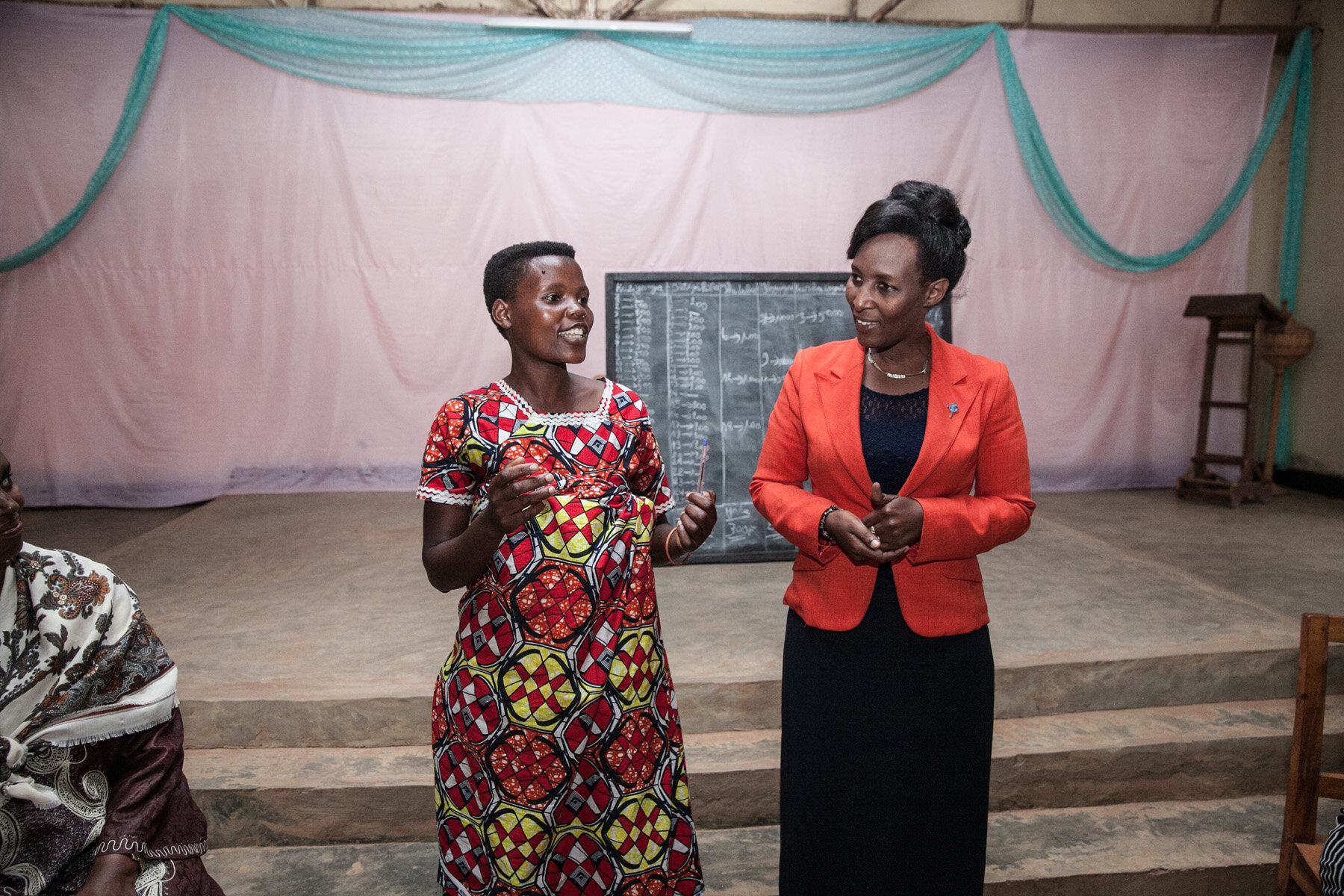In December 2019, I read an article by Deborah Doane in the Oxfam Blogs series: ‘Are INGOs ready to give up power?’ It struck a chord and I shared it with our UK Board for their Christmas holiday reading. It calls out the aid industry’s ingrained practice of hoarding power over partners in the global South, who are “marginalised into the category of ‘local’ organisation by people with white faces and authoritative titles.”
The article continues: “INGO staff and board members still seem unable to let go of a model [...] which places a higher value on their own Northern white role.” Why is this? Doane quotes Stephanie Draper: “There’s still a massive flow of funding coming from North to South. That holds uncomfortable power dynamics.” In other words, Doane concludes, “colonialism is alive and well in international development.”
I wanted to find out more about this colonialism in our sector and the #shiftthepower movement seeking to combat it. I wondered if Five Talents and our Savings Groups, with their emphasis on building skills and capital (two potent forms of power) in communities and making sure the ownership stayed with them, could be part of the solution? But then the new year 2020 began, the usual “To Do” list piled up… and in March, lockdown brought a whole swathe of immediate challenges to contend with. I forgot all about #shiftthepower.
Two months later, the hideous murder of George Floyd followed by the Black Lives Matter protests erupting around the world rightly broke through the pandemic’s monopoly on our attention. Our little team discussed it at a meeting in June 2020, and debated how we should respond. Should we issue a statement standing in solidarity with our black brothers and sisters? Some felt that of course we must. Others felt that would be a hollow gesture unless we also added deeds as well as words. In the end, we committed to spending some time reading and reflecting first. We exchanged articles, podcasts and book recommendations. Our shared reading list is now many pages long.
I remembered Doane’s article - and felt ashamed, as I educated myself for the first time on racism in the charity sector, that I hadn’t been aware of the plank in our own eye. Systemic racism, or “the imbalance of power and privilege” as Charity So White calls it, exists in every society. It must therefore exist in the development sector, in ourselves, and in Five Talents. Our Savings Groups might well be part of the solution - but Five Talents must be part of the problem too. How had this been a non-issue for us before now? How many times had we perpetuated racism - unconsciously, yes, but that is no excuse.
As we woke up to the structural racism we are inevitably part of, we knew we had to do more than read. We ended up writing a blog about building the new normal and encouraged others to discover, listen, learn and become anti-racist. We used the excellent Charity So White campaign and their thought-provoking questions for charity leaders. In July 2020, we invited a facilitator to conduct a workshop with our staff and our Board together, to help us have “a conversation about power and privilege.... a conversation about how the structures and cultures within our sector reinforce inequality in our sector” (CharitySoWhite’s words again). It wasn’t easy or comfortable - but as we had all finally learnt, it isn’t supposed to be easy or comfortable.
After the workshop, all of us - staff and trustees - wrote up our reflections and responses to the six CharitySoWhite questions. From the 20 pages, we distilled 20 actions, ranging from increasing diversity on our Board to decolonising our language, from exploring where power really lies in Five Talents to undertaking unconscious bias training and committing to tackle ‘white gaze’ in our communications.
We have conducted an audit on our recruitment practices to minimise the risk of them being exclusionary. We have re-written our grant agreements with our partners and changed the way we budget, seeking to address inequality of power in our partnerships. We have read up on ‘ethical content gathering’ and booked into some training to ensure our partners’ voices are heard in our communications. We are working on a review of the language we use, recognising that it implies value judgements, and we are seeking to recruit more trustees for our UK Board from minority ethnic backgrounds. We have asked our International Board to reflect on where decision-making power lies in our organisation and whether Board membership is representative. Whose voices are missing, or unheard?
We have started, along with many of our peers in the charity sector - but we all have a long way to go. None of these steps alone is sufficient, and after centuries of accumulated power and privilege, we expect some resistance and we expect to make mistakes. Seeking change feels hard and slow - but how much harder for those not born into hugely comfortable white privilege, as I was? And so we must commit Five Talents to do more to tackle racism in our own home and deliberately shift more power to our partners in the majority world.
Given how easy it is for this important, challenging work to be lost in the day to day busy-ness, we need to hold ourselves accountable. Each year, we will report on what we’ve done to #shiftthepower and be more anti-racist. And we ask you, our supporters, to challenge us whenever you see us exhibiting colonial attitudes and hanging onto power. We are all born into systems - but that means we can all help to change them.

























